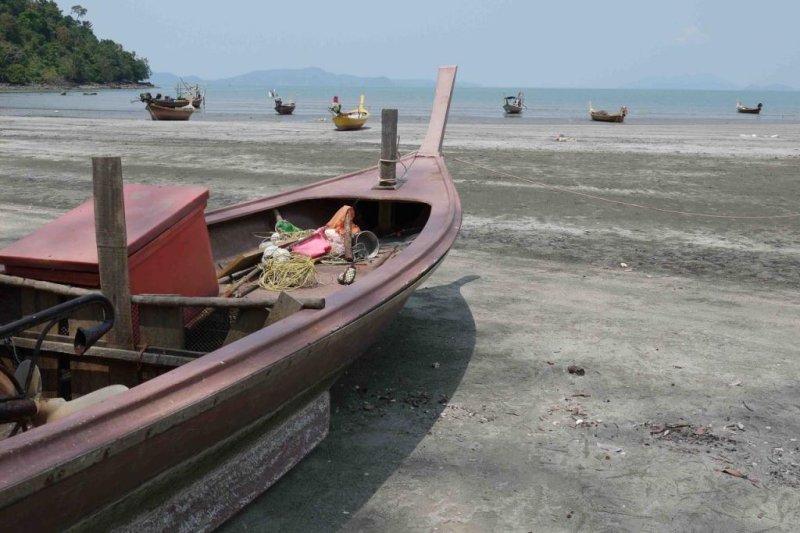An effort to protect coastal waters in Thailand has been met with fierce opposition from local fishermen and women who rely on local fish stocks for their livelihoods. Scientists suggest conservation efforts must do a better job of involving local stakeholders in the planning process. Photo by Nathan Bennett/University of Washington
SEATTLE, Dec. 6 (UPI) -- Researchers suggest conservation efforts would be more effective if a greater emphasis was placed on humans.
"We really need to think about people as we're creating conservation initiatives. Forgetting about humans in the conservation recipe is like forgetting yeast in a loaf of bread," Nathan Bennett, a postdoctoral researcher at the University of Washington and University of British Columbia, said in a news release.
Bennett is the lead author of a new paper outlining the practical contribution social scientists can offer conservation efforts. The paper was published in the journal Biological Conservation.
"When people are ignored and conservation measures are put in, we see opposition, conflict and often failure," Bennett said. "These problems require the best available evidence, and that includes having both natural and social scientists at the table."
As an example of failure, authors cited an effort to protect coral reefs, mangroves and seagrass meadow along a portion of the Thai coast. The effort was met with intense opposition from thousands of fishers who relied on the waters for food and business. Meanwhile, commercial fishing vessels continued to pull large catches from the waters, as the protections were poorly enforced.
The early involvement of local fishing communities in the conservation process, researchers argue, might have secured a greater chance of success.
According to the new study, similar protection efforts in California prove the benefits of bringing a variety of local stakeholders to the table.
"Ignoring the people who live in an area can be a costly mistake for conservation. This is one of those cases where an ounce of prevention can be worth more than a pound of cure," Bennet said. "Specialists in the social sciences can develop more creative, robust and effective solutions to environmental problems that people are going to get behind."















